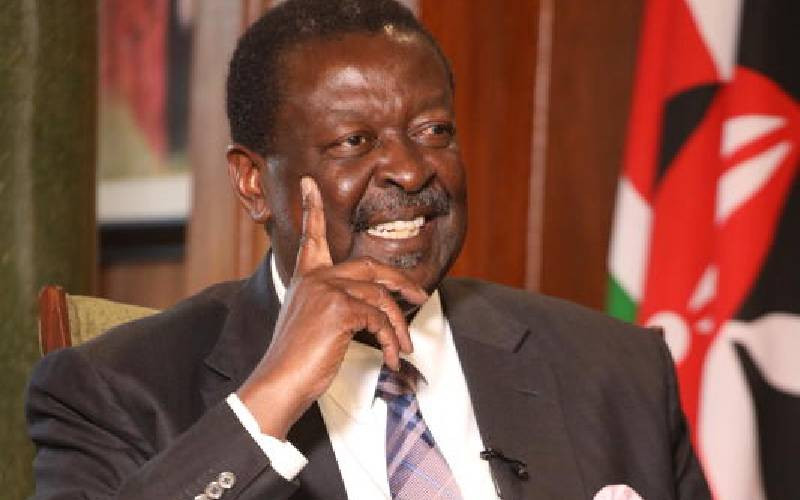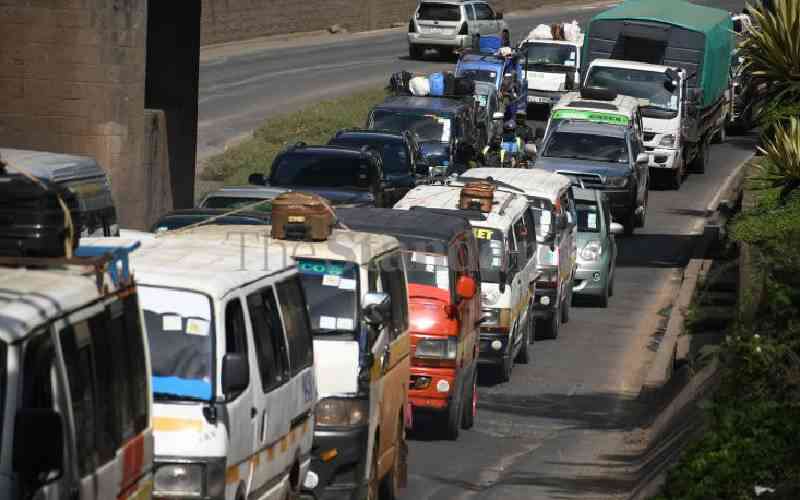
Debate on diaspora bond sparks mixed reactions among Kenyans
Prime Cabinet Secretary Musalia Mudavadi during an interview with The Standard Group at his offices in Nairobi on December 17, 2024. [Elvis Ogina ,Standard]
Kenya?s ambitious proposal to launch a diaspora bond as a financing model for monumental infrastructure projects has stirred spirited debate among citizens both at home and abroad.
The concept, unveiled by Prime Cabinet Secretary Musalia Mudavadi during Diaspora Day celebrations at the Kenyatta International Convention Centre (KICC), seeks to tap into the robust financial power of Kenyans abroad, whose remittances hit a record $4 billion (Sh520 billion) in the first ten months of 2024.
?By 2027, we project diaspora remittances to hit an astounding Sh1 Trillion, strengthening the shilling and fueling development,? said Mudavadi.
For some, the proposal is a bold step towards reducing dependency on costly foreign loans. Others, however, view it with skepticism, questioning its feasibility and potential impact.
Albert Mburu, a software engineer based in the United States, see it as a viable financing model that will unlock the country?s potential to fund itself.
?This is a brilliant idea. For years, we?ve been sending money back home to support education, healthcare, and family needs, but with no long-term impact. A diaspora bond gives us a chance to contribute to transformative projects like roads, power plants, and water systems, while also earning returns on our investment,? he said.
Mburu however calls for transparency and accountability for its success.
"Other countries have used similar models successfully. Kenya needs to communicate the terms, ensure transparency, and deliver on the projects. If the bond is well-structured, it could change the narrative of development in our country,? he added.
Mary Mueni, a Nairobi-based financial analyst, echoes Mburu?s optimism.
?Diaspora bonds offer Kenya a unique opportunity to diversify its funding model and attract lower-interest capital with extended repayment periods. This would ease fiscal pressure while providing Kenyans abroad a secure investment option,? she said.
Mueni pointed to the record-breaking remittance figures as a sign of untapped potential.
?Diaspora remittances are already a lifeline for millions of families, contributing to healthcare, housing, and rural development. With the right policies and guarantees in place, we can scale this impact to national levels,? she added. However, she cautioned that success would depend on Kenya?s ability to maintain investor trust.
?Trust is critical in this one, ?she stated.
Nairobi-based political risk analyst Dismas Mokua calls this a timely discourse for Kenya.
?It is working as right as rain in countries such as Israel, India and even Nigeria, I don?t see why it should be any different for Kenya, I think we have a strong legal and regulatory framework that can support diaspora bond,? stated Mokua.
However, not everyone is convinced like Derrick Ogola, a businessman in Kisumu who questions the practicality of the proposal.
?The government is biting off more than it can chew. We?ve seen how poorly public funds are managed. What guarantee do Kenyans abroad have that their hard-earned money won?t disappear into corruption scandals?? he asked.
Ogola also questioned whether the bond would deliver tangible benefits to Kenya.
?We already have a bloated public debt and struggle to pay back what we owe. Adding another layer of borrowing, even from the diaspora, will only make things worse unless corruption is tackled head-on,? he said.
The diaspora bond has been hailed as a strategic alternative to foreign loans, with supporters arguing it could finance high-impact projects like highways and power grids without increasing fiscal pressure. Critics, however, caution that success hinges on Kenya?s ability to offer transparency and accountability qualities many believe have been lacking in past mega-projects.






